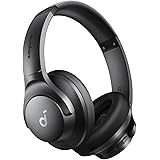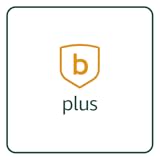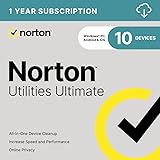Need Business Credit…Where do you start?
Did you know secured business lines of credit can offer up to $100,000 without needing collateral? Building strong business credit is key for small businesses looking to grow. A good business credit score can unlock better business financing, better vendor terms, and more financial freedom.
Starting with a small business credit card or an unsecured line of credit as low as $10,000 is a good start. Business credit is different from personal credit. It lets you keep your personal finances safe while you grow your business.
Tools like the Brex Card or Ramp Visa® Corporate Card offer rewards and cash back. This means you can earn while you spend. But, missing payments can hurt both your business and personal credit scores. So, managing your credit wisely is very important.
Key Takeaways
- Secured credit lines can offer up to $100,000 without collateral.
- Business credit scores operate separately from personal scores but impact financing options.
- Small business credit cards like the Shell Small Business™ Card or Sam’s Club® Business Mastercard® provide cashback rewards.
- Unsecured lines of credit avoid interest until funds are used, lowering upfront costs.
- Late payments on business cards can damage personal credit scores, requiring strict tracking.
Understanding Business Credit Fundamentals
Starting a business means learning new money management rules. Business credit is key for growth. Let’s simplify the basics.

What Is Business Credit?
Business credit is a financial identity for your company, not your personal finances. It’s like a scorecard for lenders to decide on loans or terms. Every payment with a business credit card or vendor account affects your credit score.
Credit bureaus like Experian and Equifax track this in a credit report. This shows how well your business meets its obligations.
Business vs. Personal Credit: Key Differences
| Aspect | Business Credit | Personal Credit |
|---|---|---|
| Ownership | Linked to the business entity | Linked to an individual’s name |
| Credit Reports | Show business-only activity | Include personal loans, mortgages, etc. |
| Scoring Models | Focus on cash flow and business history | Based on payment history and debt levels |
Why Build a Separate Business Credit Profile?
- Protection: Shields personal assets from business debts
- Growth: Better terms for loans and vendor agreements
- Flexibility: Easier to qualify for funding using the 5 Cs framework (Character, Capacity, Capital, Collateral, Conditions)
Using tools like fleet cards can start building this profile. On-time payments here boost your business credit score. Separate accounts help keep finances clear.
The Benefits of Strong Business Credit
Having strong business credit can open many doors for growth and stability. A good credit score can help you get business financing at better terms. This makes it easier to get loans or negotiate with suppliers.
For startups, this means easier access to start-up funding while keeping personal finances safe.
- Higher Credit Limits: Business credit cards often have higher spending limits than personal cards. This is great for covering changing costs.
- Rewards Incentives: Cards like Brex give rewards for spending on essentials. Some offer up to 7x cash back on things like office supplies.
- Lower Costs: Using credit cards for travel can save thousands a year. You can get lounge access, waive baggage fees, and get hotel discounts.

“A strong credit score isn’t just a number—it’s a tool for survival in competitive markets.” – Financial Analyst, JPMorgan Chase
Good credit also makes working with vendors easier. Suppliers might give you 30- or 60-day payment terms. This helps with cash flow during slow times.
For example, companies with high credit scores save about 5% on loans compared to those with average scores.
Starting early is key. New businesses can use business credit cards to build credit without risking personal assets. Rewards programs and cashback options can turn everyday spending into ways to make more money.
By focusing on credit health, businesses can get funds when they need them most. This is during times of growth or economic downturns.
Legal Foundation: Setting Up Your Business Entity
Starting a business is more than just an idea. It needs a solid legal base. Creating an LLC or corporation is key. It helps build strongbusiness creditand opens doors tosmall business funding.
This step keeps your personal assets safe. It also shows lenders you’re serious and reliable.
Choosing Between LLC and Corporation Structures
- LLC: Offers liability protection and flexible taxation. Owners report income on personal tax returns.
- Corporation: Provides scalability and investor appeal but requires formal meetings and shareholder reporting. Taxes may apply at both corporate and personal levels.
Both options help keep your finances separate. This makes it easier to getbusiness financingand credit lines.
Registration Process and Requirements
Here’s how to make your business official:
- Choose your entity type (LLC, corporation, etc.)
- File articles of organization/incorporation with your state
- Pay filing fees (varies by state)
- Obtain licenses and permits
This ensures your business is seen as a legal entity. Lenders need this to review your credit applications.
Obtaining Your Employer Identification Number (EIN)
The EIN is your business’s Social Security number. You can get it for free on the IRS website. Lenders and credit bureaus use it to check your payment history and creditworthiness.
By completing these steps, you’re not just following the law. You’re setting up a path for betterbusiness financingopportunities. Every choice you make helps lenders understand your credit profile.
Creating Financial Separation
Separating your business and personal finances is key to a strong financial base. Yet, over 70% of small businesses fail to do this, putting their assets and credit at risk. Having a dedicated bank account is crucial for tracking expenses and securing loans.
Open a Dedicated Business Bank Account
National banks like Chase or Bank of America offer great tools for businesses. Use this guide to compare options:
| Bank Type | Features | Benefits |
|---|---|---|
| National Banks | Online portals, business credit cards | Access to business line of credit |
| Community Banks | Local support, flexible terms | Personalized service |
| Credit Unions | Lower fees, member benefits | Competitive interest rates |
Secure Business-Specific Contact Details
- Register a virtual office address for legitimacy
- Use Google Voice or RingCentral for a professional phone number
- Update all vendor contracts with official business contact info
Professional Documentation Essentials
Make sure you have these official documents:
- Invoice templates with tax ID numbers
- Contracts signed with business letterhead
- Annual reports filed with the Secretary of State
Business credit agencies like Experian value well-organized records. Over 30% of businesses with a DUNS number get better credit terms faster. Good documentation also helps when applying for equipment financing or a business loan.
Building Your Business Credit Profile
To start a business credit profile, you need to take some steps. First, open net-30 vendor accounts. Suppliers like Office Depot or QuickBooks report payments to Dun & Bradstreet. Paying on time will help your credit score and show you’re reliable.
Getting a business credit card is another good move. Cards like the Chase Business Preferred or Capital One Spark Cash for Business report to all three bureaus. Use them for regular expenses, but don’t spend more than 30% of the limit.
Check your scores from Equifax, Experian, and Dun & Bradstreet every year. Late payments can hurt your score, so set reminders. With time, this can increase your score by 50-100 points.
| Method | Impact | Action Step |
|---|---|---|
| Vendor Accounts | Builds payment history | Pay invoices by net terms |
| Business Credit Cards | Improves credit utilization | Pay balances monthly |
| Supplier Credit Lines | Increases credit limits | Negotiate terms with trusted vendors |
Don’t forget: 70% of businesses without separate accounts get loan denials. Start small, stay consistent, and watch your profile grow. This will help you get better loans and terms in the future.
Working with Business Credit Bureaus
Building strong business credit starts with knowing the three major bureaus. These agencies give credit reports that affect small business funding options. Let’s look at how each bureau works and what they measure.
Monitoring your business credit is essential, as inaccuracies can occur even in carefully vetted information.
Start by registering for a free D-U-N-S Number to create a profile. Their PAYDEX score (1–100) rates payment reliability. Scores above 80 signal low risk to lenders. Paying bills on time boosts this score, improving access to loans and vendor credit.
Experian’s Intelliscore Plus (1–100) and Financial Stability Risk Score (1–5) evaluate risk. A score above 80 or a 1–2 risk rating improves loan terms. Purchase a report for $39.95 or subscribe for $189/year to track changes monthly.
Equifax’s Payment Index (0–100) rewards on-time payments, while their credit risk score (101–992) helps lenders assess risk. Unlike consumer credit, business credit reports require proactive management—apply for a report when seeking loans or credit lines.
| Bureau | Key Score | Score Range | Optimal Range |
|---|---|---|---|
| Dun & Bradstreet | PAYDEX | 1–100 | 80+ |
| Experian | Intelliscore Plus | 1–100 | 80+ |
| Equifax | Payment Index | 0–100 | 90+ |
Regularly check reports to catch errors and negotiate better terms. Even small businesses can build strong profiles by prioritizing timely payments and monitoring these critical metrics.
Funding Options That Help Build Business Credit
Getting start-up funding and making smart financing choices are key for new businesses. Tools like the business credit card or business line of credit offer capital and help build credit. Using these wisely shows lenders you’re reliable.
Business Credit Cards
Look for cards that report to agencies like Dun & Bradstreet. The Spark 1% Classic has unlimited cash rewards and no annual fee. It also works well with QuickBooks for easy tracking.
For startups, pick cards that don’t need collateral and report to all three bureaus.
Vendor Credit Accounts
Get vendor accounts with suppliers that offer net terms. Pay on time to improve your credit score. Companies like Office Depot or UPS often give good terms.
Keep your payments on time and consistent. This will help your vendor credit score.
Business Lines of Credit
American Express® Business Line of Credit offers up to $250,000. You need a 660 FICO score and $3,000 monthly revenue to apply.
It has flexible terms (12–24 months) for repayment based on cash flow. OnDeck provides instant funding without collateral, needing a 625 FICO and $100k annual revenue.
Start-ups can benefit from unsecured options like OnDeck’s lines. These report payments to bureaus. Keep an eye on credit utilization and avoid maxing out lines.
Monitoring and Maintaining Your Business Credit
Keeping an eye on your business credit is like checking your car’s engine. Regular checks prevent problems. Look at your credit report every three months to find errors or late payments. Tools like Dun & Bradstreet’s Data Cloud offer daily updates with over 400 million records.
- Track utilization: Keep credit usage under 30%, ideally below 10%, to show financial discipline to lenders.
- Respond to red flags: Dispute inaccuracies right away using bureau dispute portals. A single missed payment can lower scores by 10+ points.
- Use automated alerts: Set up D&B Credit notifications for changes, legal judgments, or score drops.
A solid business credit profile leads to better business financing options. For example, a PAYDEX® score of 80 shows on-time payments, boosting lender trust. QuickBooks automatically syncs transactions, making it easy to track spending.
Lenders check credit reports for lines of credit or SBA CAPLines applications. Keeping a 10% utilization ratio and fixing issues quickly keeps your profile strong. Regular checks also help find better terms with suppliers or landlords using your clean payment history.
Stay ahead—your credit profile is always changing. Small steps like upgrading to an unsecured credit card or adding new vendors can improve scores. The aim is to use your creditworthiness as a growth advantage.
Common Mistakes to Avoid in Business Credit Building
Keeping your business credit strong is crucial. Stay away from these three mistakes to keep your credit score high and get better business loans.
Over 250,000 small businesses have boosted their business credit scores using Nav tools, proving smart strategies work.
Keep your finances separate, pay on time, and apply for credit wisely. Here’s how to avoid these common errors:
Mixing Personal and Business Finances
Using personal accounts for business can mess up your credit. Over 30% of startups make this mistake, risking audits and confusing credit reports. Open specific bank accounts and track your business expenses separately to build a solid business credit history.
Missing Payment Deadlines
Late payments can hurt your credit scores fast. Experian says one late payment can lower scores by 20+ points. Set up auto-pay and reminders to avoid late fees.
Over-Applying for Credit
Applying for too many credits at once can look risky. Experian notes that each inquiry can lower scores by 5-10 points. Space out your applications and aim for 3-4 quality accounts.
| Mistake | Impact | Fix |
|---|---|---|
| Mixed Finances | Confused credit trails | Open dedicated accounts |
| Late Payments | Score drops | Set reminders |
| Over-Applying | Looks risky | Space applications |
Pro tip: Use Nav’s free tools to track your progress. Even small businesses can improve by fixing these mistakes. A strong business credit profile can lead to better loan terms and more financial freedom.
Conclusion
Building a strong business credit profile is an ongoing effort. It grows with your company. By keeping business and personal finances separate, you open up better funding options and protect your personal assets.
Timely payments, like those tracked by Dun & Bradstreet’s PAYDEX score, boost your credibility. A score above 80 shows lenders you’re reliable. Meanwhile, Experian’s Intelliscore Plus℠ scores above 75 can lead to lower loan interest rates.
Business credit scores are key to accessing important resources. For example, SBA loans often require scores near 680. Consistent payment history can improve your chances of getting approved.
Over 45% of business loan applications are rejected due to weak credit. This shows how crucial it is to focus on this area. Tools like Equifax’s Credit Risk Score and FICO’s SBSS system look at more than just payments. They also consider industry stability and credit usage.
Ignoring public records like bankruptcies can harm your progress. But, taking proactive steps like getting a DUNS number and monitoring reports can help. This builds your credit’s resilience.
Maintaining business credit isn’t just about loans. It also opens doors to vendor financing, merchant cash advances, and partnerships. Merchant cash advances, for instance, offer quick funding with daily repayments, without hurting your credit score.
Starting today means taking control of your financial future. Every on-time payment and score update brings you closer to the flexibility needed to grow. Your EIN and legal structure are just the beginning. The real work starts with consistent action.
Prioritize these steps now to turn credit strength into a lasting competitive edge. It’s a journey that requires ongoing effort and dedication.











